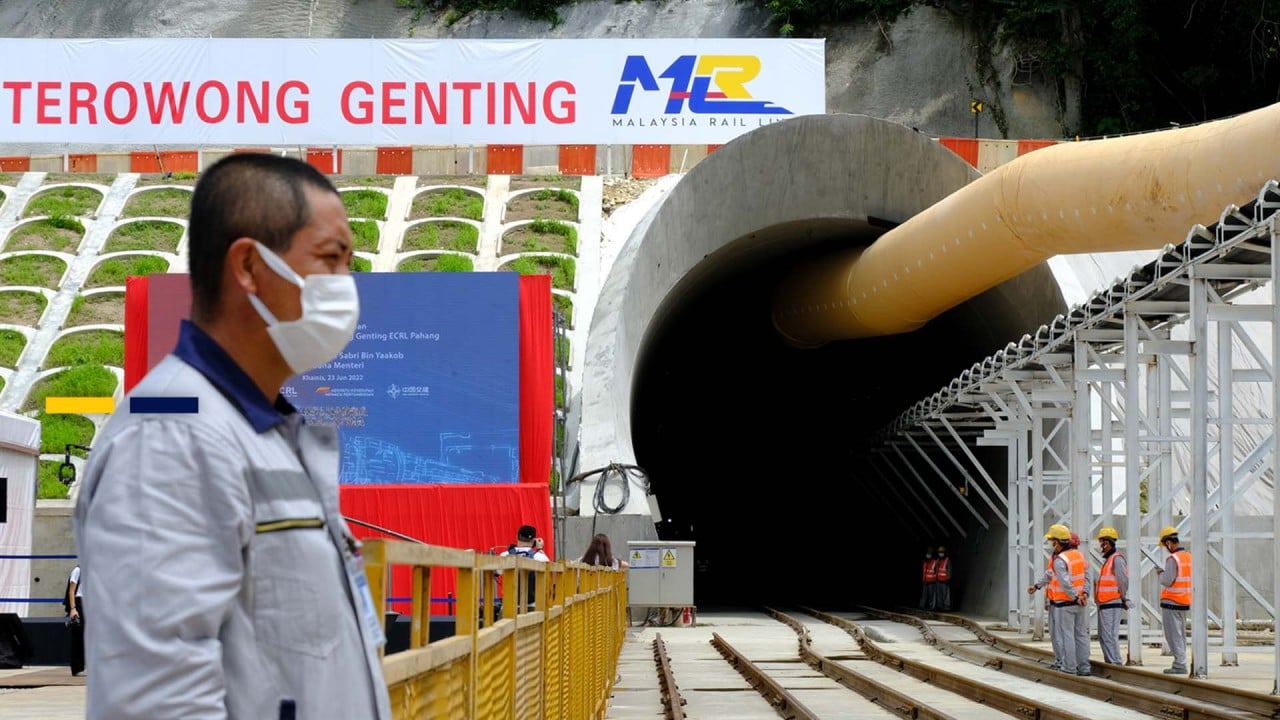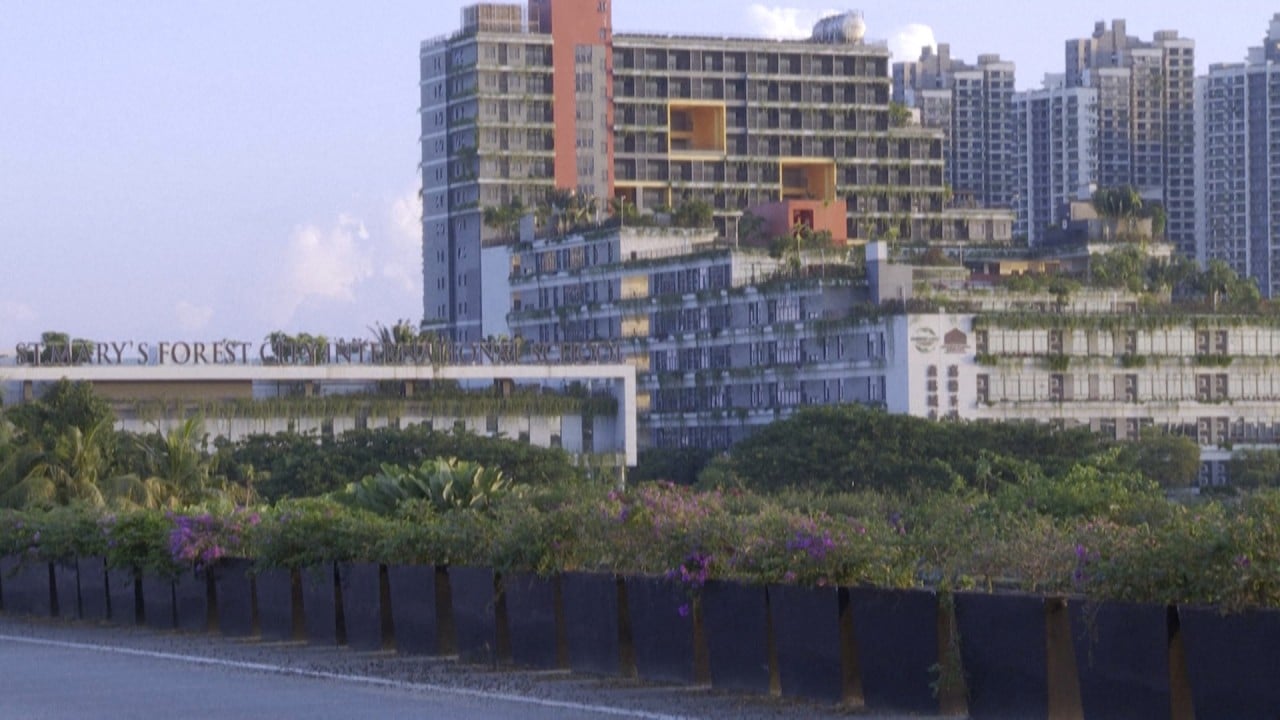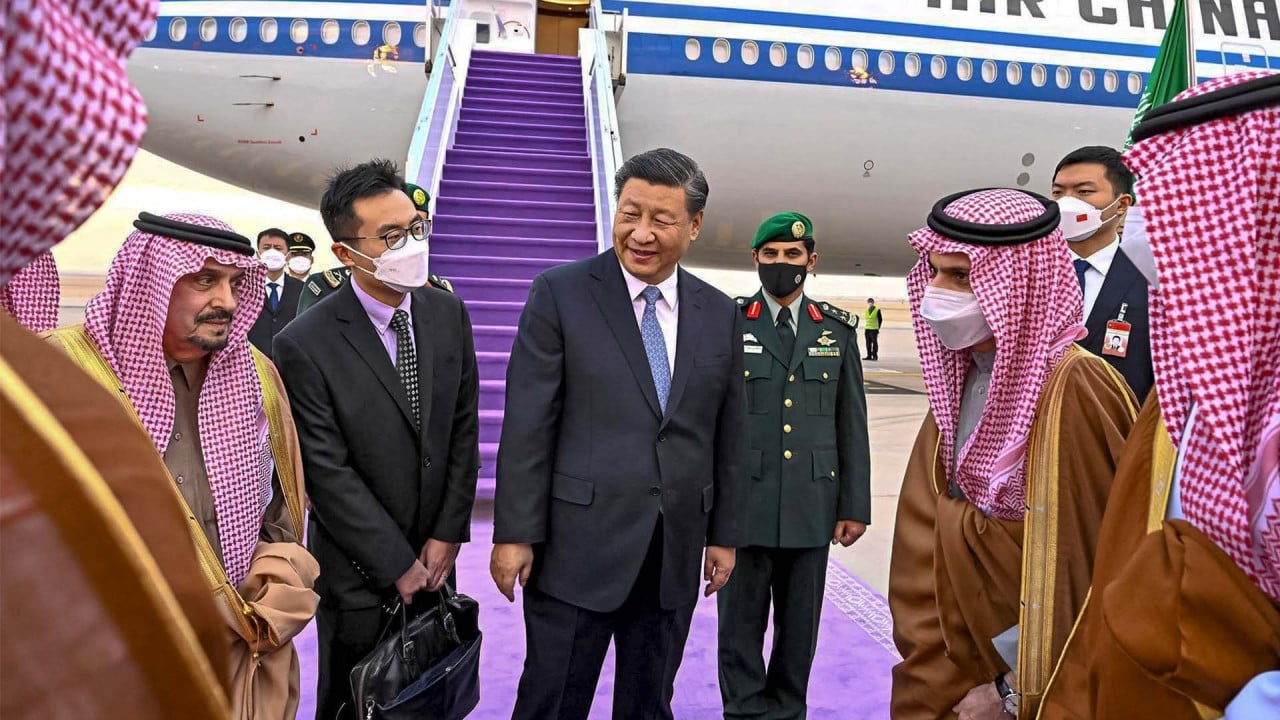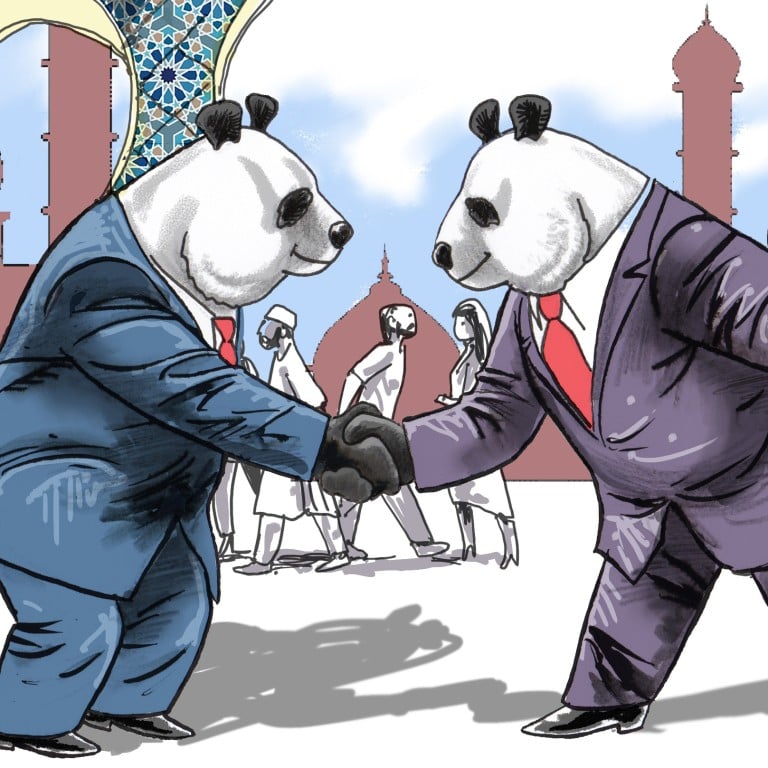
As China invests in developing Islamic economies, it must steer clear of sensitive identity politics
- China’s investments and cultural push risk upsetting socioeconomic fragilities, as seen in Malaysia’s ‘green wave’
- To avoid this, Beijing must keep its projects corruption-free, promote equitable growth and learn from Islamic culture, starting with its Muslim minority at home
Herein lies the risks for China: its expanding economic footprint could exacerbate the developing world’s fragile socioeconomic landscape. To promote balanced development, China must ensure its investments bring a socioeconomic uplift to all.
A young and underskilled population is another source of instability in developing countries like Malaysia. As a technological superpower, China should prioritise the transfer of technology and equip the workforce in these countries for the fourth industrial revolution.
This has led to resentment among some who view it as a threat to Malay cultural heritage. The PAS-led green wave is driven by a mixture of ethnic and religious sentiment, aimed at preserving indigenous Malay culture and the Islamic way of life.
Malaysia’s case sheds light on the shortcomings of China’s soft power effort. Without question, for multiculturalism to be successful, Malaysians of all races must continue to foster trust and understanding through cross-cultural engagement and mutual learning.
Why Cambodia has mixed feelings about China-built Phnom Penh-Sihanoukville road
Herein lies one criticism of China’s civilisation campaign – its one-sided approach. While Beijing focuses on promoting Chinese culture globally, there is little commensurate effort to learn from and embrace other cultures.
During Xi’s visit to Saudi Arabia, he referenced the prophet Mohammad’s call to seek knowledge from the East, and the Saudi minister of education promised to teach the Chinese language in the kingdom. But to establish mutual trust, China must also make a reciprocal commitment to learn about and understand Arabic culture.
A peculiar trait of Chinese civilisation is its insularity. China is a land of diverse religiosity, such as Buddhism, Christianity and Islam. But these were mostly introduced by foreign emissaries and missionaries. Imperial China rarely ventured beyond its borders and displayed little interest in the outside world.
The Hui Muslims, situated between the Confucian and Islamic milieu, were pioneering bridge-builders who translated the Koran into Chinese, the Han Kitab. China today should embrace the open-mindedness of the Ming era and engage the Hui, known as “Muslims with Chinese characteristics”, to connect with the larger Islamic community.
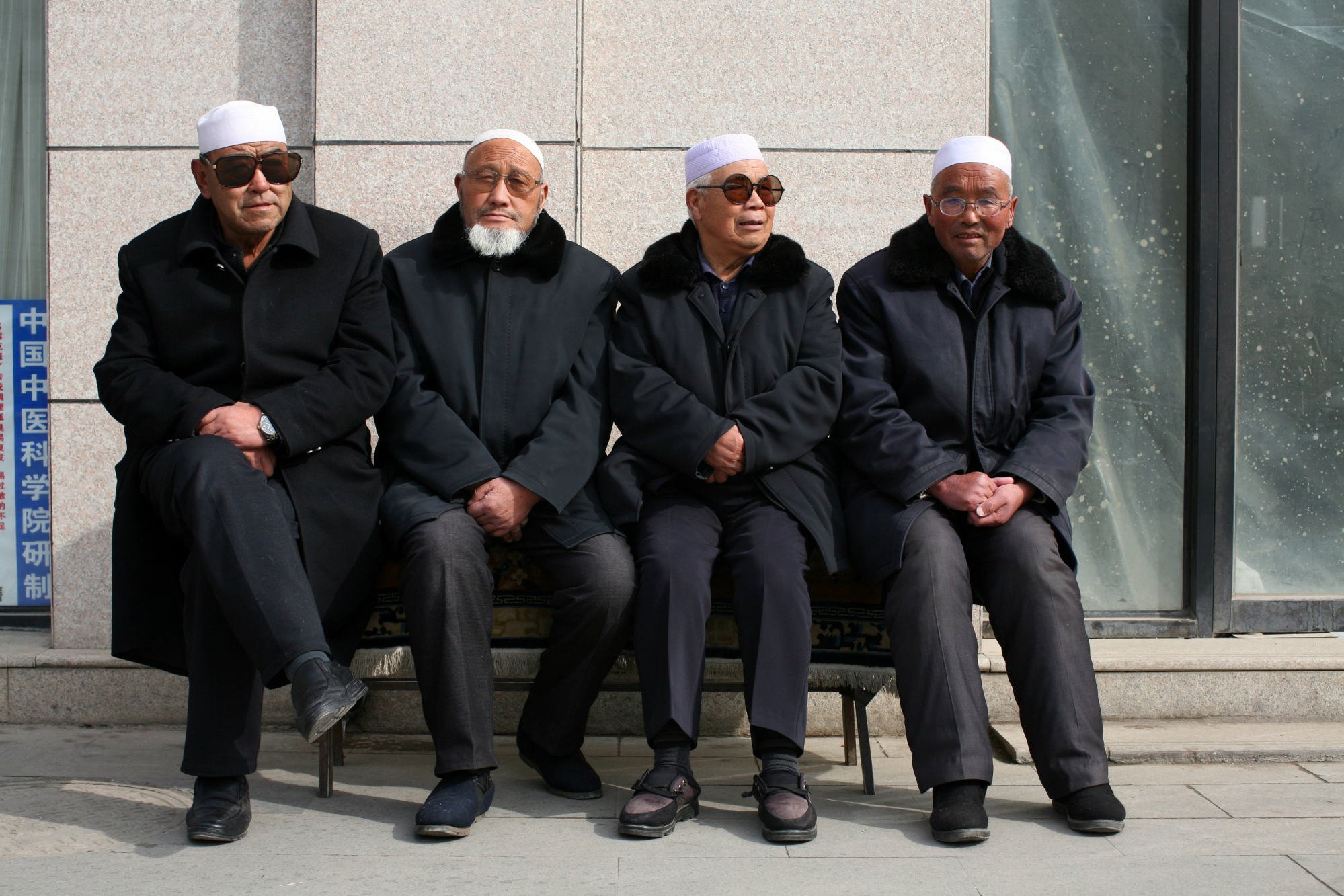
In 2016, China established its first overseas university, Xiamen University in Malaysia, showing its commitment to technological transfer. In addition to offering courses such as in Chinese literature and philosophy, the university should also establish a Malay studies department to research and deepen understanding of the Malay civilisation. This is a crucial step towards strengthening the bond between China and the Malay world.
Xi’s state visit to Saudi Arabia marked a significant moment in Sino-Islamic relations. However, to achieve “common prosperity” in developing countries like Malaysia, Beijing must ensure its socioeconomic power benefits everyone.
And to realise a “shared future with humankind”, China must overcome its insularity and embrace, among others, the Malay and Islamic civilisations. To coexist harmoniously, China and the world’s civilisations must continue to foster trust through mutual learning and understanding.
Peter T.C. Chang is deputy director of the Institute of China Studies, University of Malaya, Kuala Lumpur, Malaysia


